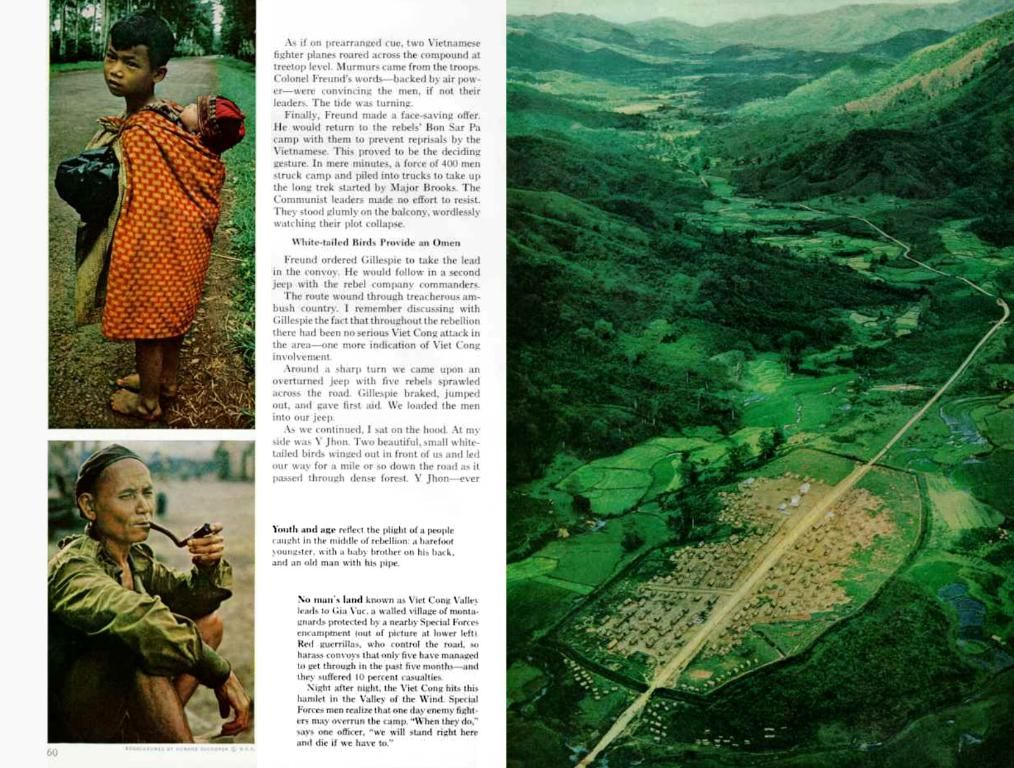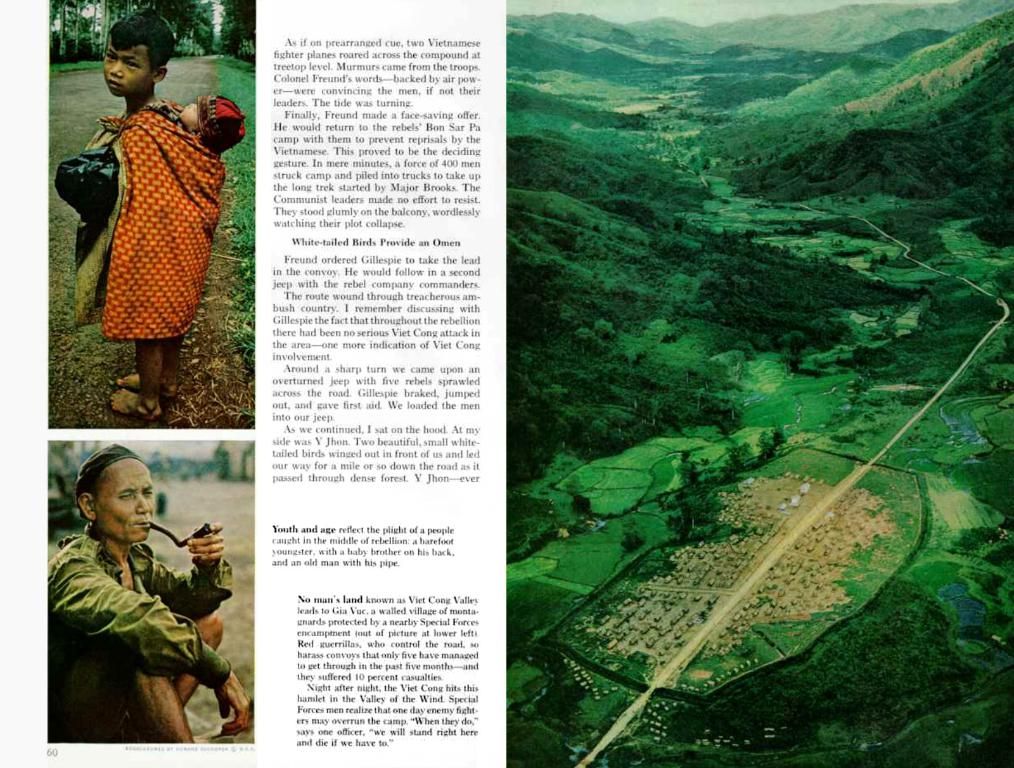Border Disputes Resolved: Kyrgyzstan and Tajikistan Reconcile
Kyrgyzstan and Tajikistan have officially concluded a border delimitation agreement, marking the culmination of long-standing disputes and paving the way for increased regional trade. The pact was sealed during a bilateral meeting in Bishkek, which resulted in the signing of the border accord and agreements on interstate road transit, power generation facilities, and shared water resources.
According to a Kyrgyz government statement, the negotiations occurred in an amicable atmosphere, with both sides expressing friendliness and mutual understanding. Furthermore, discussions centered around the development of transit routes, the management of power facilities, and the allocation of shared water resources.
The border settlement is of significant importance, as it was reached after years of contentious issues over arable land and water resources in disputed border areas, leading to armed clashes in 2021 and 2022. Prior to the agreement, both nations found themselves embroiled in an arms race, raising concerns about the potential resurgence of violence.
In the aftermath of the border agreement, Kyrgyz officials have announced that the presidents of Kyrgyzstan, Tajikistan, and Uzbekistan will convene for a historic trilateral meeting in late March. The summit is anticipated to bolster regional cooperation, with the Deputy Prime Minister of Kyrgyzstan, Edil Baisalov, stating that it would be a significant step in promoting regional collaboration.
As part of a commitment to strengthen border security, Kyrgyzstan has pledged to enhance controls at crossings connecting the country with Tajikistan and Uzbekistan. At present, five road crossings between Kyrgyzstan and Tajikistan lack border controls. The move to tighten security checks at these points is in compliance with the Eurasian Economic Union's (EAEU) requirements regarding a stringent customs regime. Kyrgyzstan is the sole EAEU member state to ratify full membership.
According to a report from the Uzbek news outlet Daryo, there have been instances of trucks violating international road transport agreements in the absence of traffic control at some checkpoints. The proposed expansion of monitoring aims to ensure improved compliance with interstate regulations and bolster border security.
The agreement holds profound implications for the political stability, regional security, and economic cooperation in Central Asia. Although reached with minimal public or parliamentary oversight in Kyrgyzstan, the pact is expected to create favorable conditions for economic and humanitarian cooperation in the region.
However, the agreement's success hinges on continued cooperation between the two nations and potential domestic political challenges. The ongoing construction of a fence along the 972-kilometer border, which includes 3D mesh, barbed wire, and anti-tank ditches in certain areas, is aimed at ensuring security and stability. The fence's initial phase covers 420 kilometers. The reopening of checkpoints, trilateral agreement with Uzbekistan on border junctions, and streamlined customs procedures are anticipated to facilitate increased interstate travel and trade, enhancing cooperation and stability in the region.
- The news about the border delimitation agreement between Kyrgyzstan and Tajikistan has sparked discussions about increased regional trade.
- The signing of the border accord marks the end of long-standing disputes and the beginning of a new chapter in bilateral relations.
- The interstate road transit agreement will undoubtedly boost productivity in the transportation sector.
- Career development opportunities are expected to rise due to the improved trade relations between the two nations.
- Policy-and-legislation experts are analyzing the implications of the agreement for future policy-making.
- Car-accidents may decrease with the proposed expansion of border controls, ensuring safety for travelers.
- The agreement serves as a testament to the power of diplomacy in resolving conflicts and fostering peace.
- Migration patterns might shift as a result of the improved economic conditions brought about by increased trade.
- The agreement on power generation facilities could lead to new opportunities in renewable energy, contributing to personal-growth and self-development.
- It's essential to maintain mindfulness about the potential political challenges that may arise from the agreement.
- Migration and border control policies will undergo a significant overhaul in light of the border settlement.
- The importance of education-and-self-development in understanding the implications of the agreement cannot be overstated.
- The ongoing construction of the border fence is a clear demonstration of the commitment to ensuring security and stability.
- Safety measures like anti-tank ditches are being implemented to prevent conflict along the border.
- In the context of the increasing regional cooperation, sports diplomacy could play a significant role in strengthening ties.
- Football fans may look forward to friendly matches between the football champions of Kyrgyzstan and Tajikistan.
- The Champions League, NFL, WNBA, baseball, hockey, and golf enthusiasts might engage in sports-betting as a form of entertainment.
- European leagues like Serie A, Laliga, NBA, and NCAABasketball will likely experience increased interest from Central Asian fans.
- The success of the border agreement also depends on the implementation of goal-setting and skills-training programs for border officials.
- The agreement on shared water resources is a crucial step towards sustainable development and addressing climate change.
- The expanding monitoring at checkpoints is expected to reduce crimes related to international road transport.
- Weather forecasting will be essential in ensuring uninterrupted interstate travel and trade, especially during the winter months.
- Auto-racing enthusiasts may look forward to the possibility of races between European and Central Asian circuits.
- In light of the agreement, mixed-martial-arts competitions can serve as a platform for promoting cultural exchange and mutual understanding.








